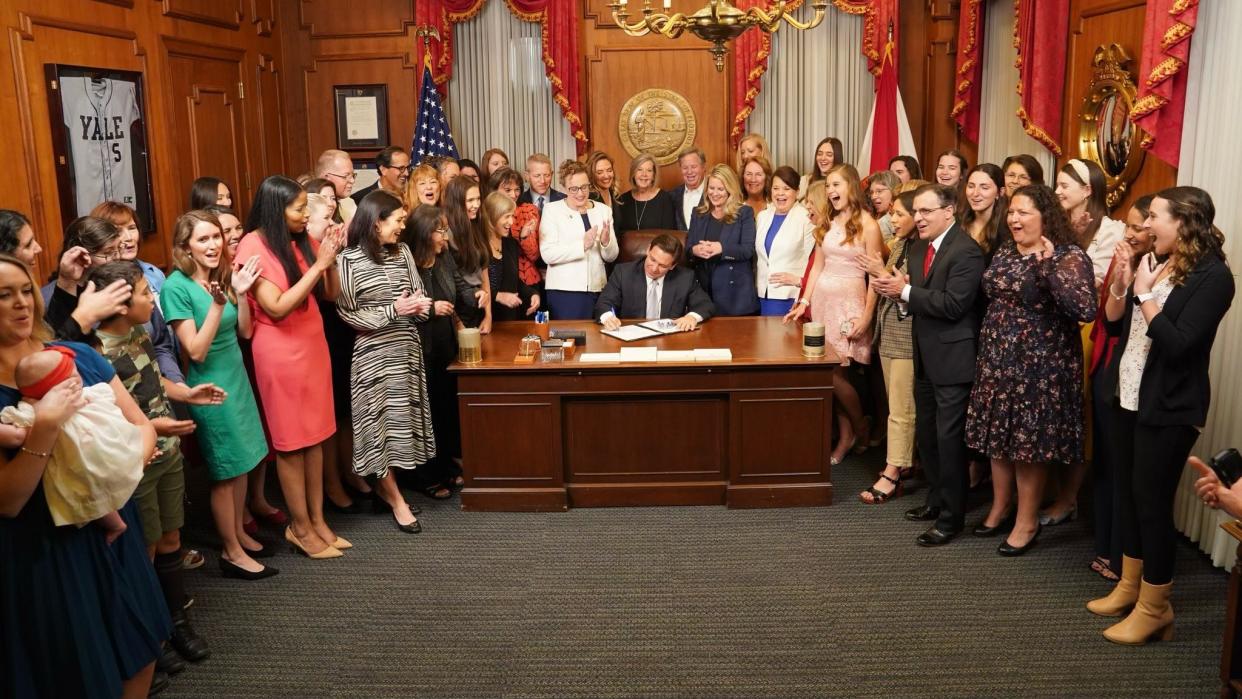Retired physician: Pro-choice advocates must define their terms or cite the science

- Oops!Something went wrong.Please try again later.
In a Sept. 10 column, Dr. Stephen Entman described factual errors in a case cited by Gov. Ron DeSantis during the first GOP debate, concerning someone who reportedly survived an abortion. However, Dr. Entman did not deny that what survived the procedure was not a fetus, nor “products of conception,” but a separate human being ― a person.
This issue is at the heart of the abortion debate. Like many pro-choice advocates, Dr. Entman does not address what he thinks a fetus really is, whether it is a separate human being or not. For all the talk about the need to “follow the science” on various issues, pro-choice advocates seem to avoid all discussion about the science concerning abortion.
Every person on this planet goes through a genetically programmed life cycle that starts with the fertilized egg, then goes to growth of cells, development of organ systems, increase in size, birth, puberty and full maturation of the brain at age 25. Then follows gradual loss of strength, old age and eventual death.
We all go through these stages unless interrupted by disease or trauma. In my opinion, abortion is one such trauma.
Early in medical school, I was taught that when a pregnant woman comes into my clinic, I am responsible for two patients, not one. There are medications I cannot prescribe because of the risk of harm to the fetus, such as birth defects.
However, according to pro-choice advocates, in the same situation described above, if the mother (the patient) wants an abortion, then it is acceptable ― even “standard medical procedure” — to kill the fetus (the other patient). This destruction of the fetus makes abortion the only “standard medical procedure” with a 50% mortality rate.
There is no way to dispute the above statement other than to say the fetus is not a person, and thus not a patient. However, there is no real scientific evidence to back this up.
Dr. Entman stated “neither politicians nor jurists have the right to usurp the moral autonomy of the individual.” However, if unborn children are separate human beings, then governments not only have the right, but also the obligation, to protect people who cannot protect themselves. Unless pro-choice advocates can prove that the fetus is not a separate human being, then the obligation of the states (and the people they represent) remains.
Dr. Entman correctly noted that some situations require difficult choices to be made. Over 60 million abortions have occurred since it was legalized. It is better to pass laws, including restrictive and complicated laws, that try to address such difficult situations, than to do nothing and let another 60 million unborn children go through the same fate.

Peter K. True, M. D. (retired), Jacksonville
This guest column is the opinion of the author and does not necessarily represent the views of the Times-Union. We welcome a diversity of opinions.
This article originally appeared on Florida Times-Union: If unborn child is a person, government has duty to restrict abortions

